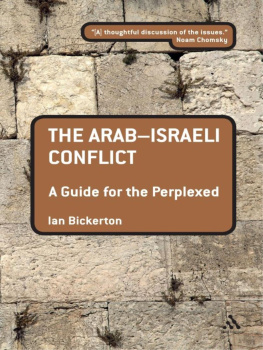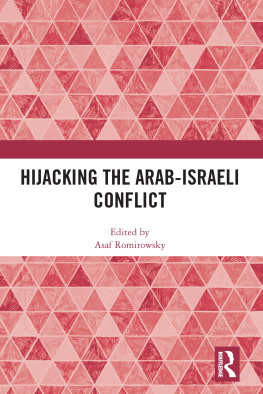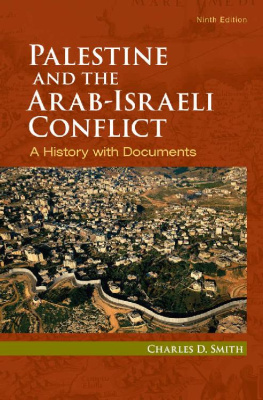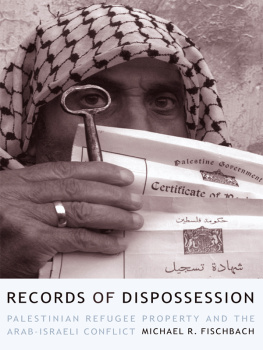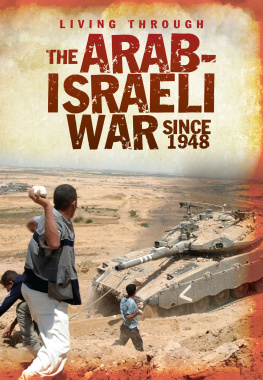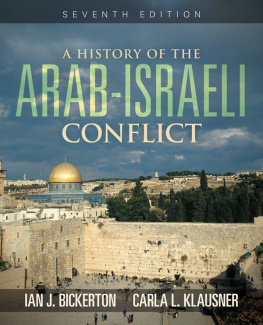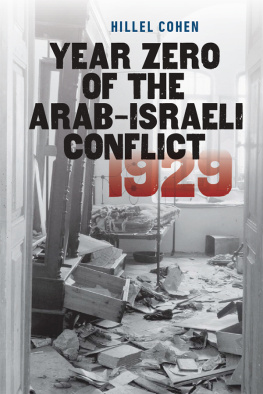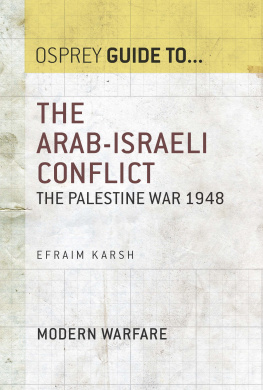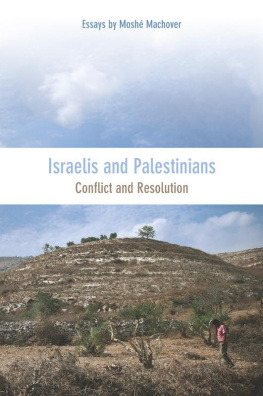
THE ARABISRAELI CONFLICT, 19561975
The ArabIsraeli Conflict, 19561975 contains a collection of articles that examine select issues between the end of the Suez Campaign in November 1956 and the Sinai II, or Interim Agreement, signed by Israel and Egypt in September 1975.
The book provides a comprehensive overview of the struggle between the three superpowers the UK, the United States and the Soviet Union and the effects this had on the region. It also explores the circumstances that led to the Six Day War in June 1967, such as the use of air power and the Israeli retaliatory raids. Two chapters look at the two leaders during the war: Egyptian President Gamal Abdel Nasser, leader of the Arab world a charismatic and dominant persona and Israeli Prime Minister Levi Eshkol, considered weak and inconspicuous. Three chapters focus on the period between the two wars June 1967 and October 1973 and one explores the aftermath. Emphasis is placed on Israeli policy between 1967 and 1973, which primarily focused on the use of military power and foreign policy inaction. It is argued that it was this policy that hindered all progress in the peace process, and ultimately led, among other factors, to the Yom Kippur War. The final chapter is on Kissinger and the road to the Sinai II Agreement. It discusses the huge shift in American policy from avoiding a significant role in the prevention of an imminent war during May and June 1967, to deep involvement in every detail of the dispute during and following the Yom Kippur War.
Providing an in-depth examination of this important period of the ArabIsraeli conflict, this book will appeal to students and scholars of Middle Eastern History and Politics, Conflict Studies and International Relations.
Moshe Gat is Professor Emeritus of Political Studies and European Modern History. He was formerly Head of History Department and Head of Political Studies Department at Bar Ilan University, Israel.
ISRAELI HISTORY, POLITICS AND SOCIETY
Series Editor: Efraim Karsh Kings College London
This series provides a multidisciplinary examination of all aspects of Israeli history, politics and society, and serves as a means of communication between the various communities interested in Israel: academics; policy-makers; practitioners; journalists and the informed public.
For a full list of titles in the series: www.routledge.com/middleeaststudies/series/SE0790
61. The Jewish Origins of Israeli Foreign Policy
A Study in Tradition and Survival
Shmuel Sandler
62. Israel, the Arabs and Iran
International Relations and Status Quo, 20112016
Ehud Eilam
63. The ArabIsraeli Conflict, 19561975
From violent conflict to a peace process
Moshe Gat
64. Hamas and Ideology
Sheikh Ysuf al-Qaraw on the Jews, Zionism and Israel
Shaul Bartal and Nesya Rubinstein-Shemer
Israel: The First Hundred Years (Mini Series)
edited by Efraim Karsh
1. Israels Transition from Community to State, edited by Efraim Karsh
2. From War to Peace? edited by Efraim Karsh
3. Politics and Society since 1948, edited by Efraim Karsh
4. Israel in the International Arena, edited by Efraim Karsh
5. Israel in the Next Century, edited by Efraim Karsh
First published 2018
by Routledge
2 Park Square, Milton Park, Abingdon, Oxon OX14 4RN
and by Routledge
711 Third Avenue, New York, NY 10017
Routledge is an imprint of the Taylor & Francis Group, an informa business
2018 Moshe Gat
The right of Moshe Gat to be identified as author of this work has been asserted by him in accordance with sections 77 and 78 of the Copyright, Designs and Patents Act 1988.
All rights reserved. No part of this book may be reprinted or reproduced or utilised in any form or by any electronic, mechanical, or other means, now known or hereafter invented, including photocopying and recording, or in any information storage or retrieval system, without permission in writing from the publishers.
Trademark notice: Product or corporate names may be trademarks or registered trademarks, and are used only for identification and explanation without intent to infringe.
British Library Cataloguing in Publication Data
A catalogue record for this book is available from the British Library
Library of Congress Cataloging in Publication Data
Names: Gat, Moshe, author.
Title: The Arab-Israeli conflict, 1956-1975 : from violent conflict to a peace process / Moshe Gat.
Other titles: Cass series--Israeli history, politics, and society ; 63.
Description: Milton Park, Abingdon, Oxon : Routledge, 2018. | Series: Israeli history, politics and society ; 63 | Includes bibliographical references and index.
Identifiers: LCCN 2017027532 | ISBN 9781138093324 (hbk) | ISBN 9781138093331 (pbk) | ISBN 9781315103938 (ebk)
Subjects: LCSH: Arab-Israeli conflict. | Israel-Arab War, 1967. | Middle East--Foreign relations--20th century.
Classification: LCC DS119.7 .G375 2018 | DDC 956.04--dc23
LC record available at https://lccn.loc.gov/2017027532
ISBN: 978-1-138-09332-4 (hbk)
ISBN: 978-1-138-09333-1 (pbk)
ISBN: 978-1-315-10393-8 (ebk)
This book contains ten chapters that examine selected issues in the period that begins immediately after the Suez Campaign in November 1956, and ends with the Sinai II interim agreement signed by Israel and Egypt in early September 1975. During these years, Israel battled its neighbours in three wars: the Suez Campaign in October 1956, the June 1967 War, and the high-casualty Yom Kippur War in October 1973. It provides an overview of the power struggle between superpowers during the Cold War era, the circumstances that led to the Six Day War, as well as the Israeli and Egyptian policies following it. Emphasis has been placed on the Israeli policy between 1967 and 1973, which primarily focused on use of military power and foreign policy inaction. It was this policy that had in effect hindered all progress in the peace process, and ultimately led, among other factors, to the Yom Kippur War.
The present collection centres on three superpowers, namely the United Kingdom, the United States and the Soviet Union. Great Britain, having ruled over large parts of the Middle East, had slowly begun to lose its clout, and was even in the process of leaving the area altogether. It was powerless in the face of a Soviet penetration, thus relinquishing its hold to the United States, as it did in several other places as well. The British policy following the Suez Crisis was to take capability-appropriate steps to prevent the waging of another war between Israel and its neighbours, for fear that another campaign would lead to broadened Soviet impact in the region, and may have implications on the UK, and indeed European, economy. Acute financial difficulties had dictated Londons political conduct, as manifested in the shift in its approach to Israel from a supportive policy, be it in the water dispute that began in early 1964, or the attempt to remove the Egyptian blockade on the Straits of Tiran prior to the June 1967 War, to one that supported the Arab stance following it. Foreign Secretary George Browns speech to the UN General Assembly on 21 June had marked this change in policy.



